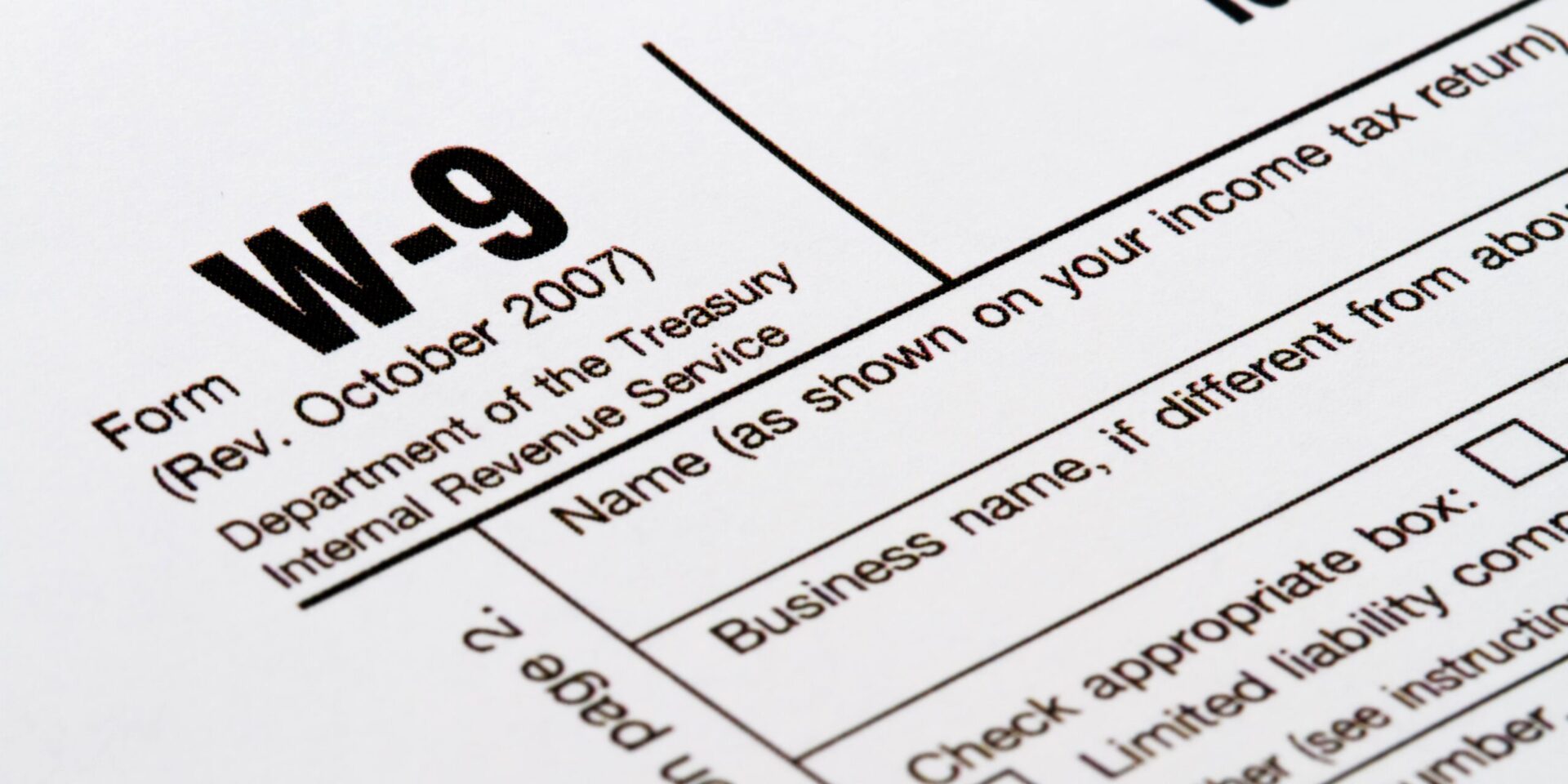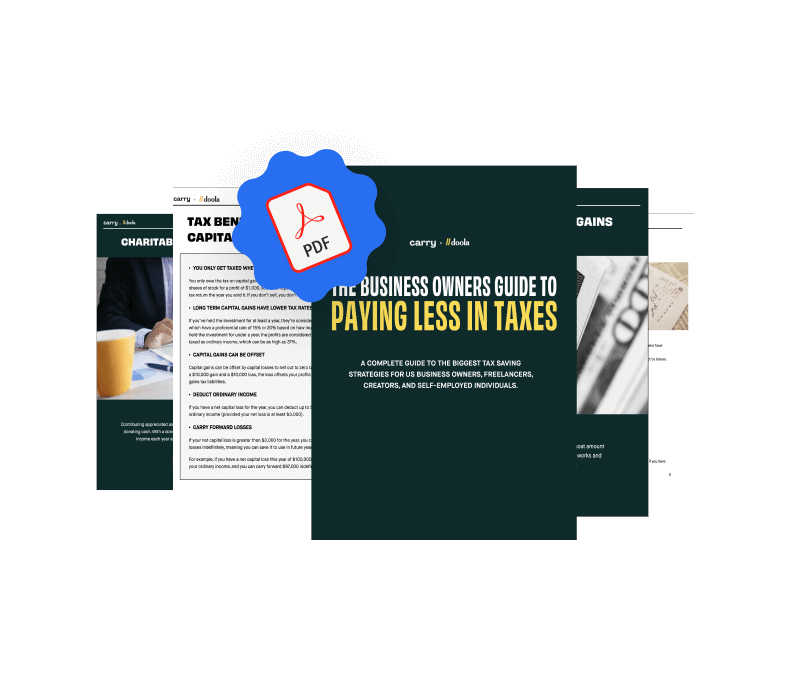Language:
Do You Need a New W-9 Each Year? Here’s The Answer

Do you need a new W-9 tax form each year? It’s a question as old as the tax code and one that has puzzled many taxpayers over the years. Whether or not you need to complete a new W-9 form annually depends on your specific employment situation and changes in your financial details.
Understanding the nuances of tax forms like the W-9 can be overwhelming, especially when your financial situation is complex.
That’s where doola comes in. doola not only helps you manage your tax filings but also provides expert guidance on maximizing your tax savings, ensuring you’re always compliant without the stress.
Read on to learn everything you need to know about the W-9 form and how to determine whether you need to complete a new one.
What Is a W9 Form?
W-9 forms are documents used to collect information from independent contractors, who are not considered employees of the organization they’re working with.
The purpose of the form is to collect the contractor’s taxpayer identification number (TIN) or Social Security number for the purpose of reporting income to the IRS.
Basically, it’s a way of collecting information so everyone knows where money is going and who is responsible for paying taxes on it. If something changes, you can’t modify the W-9. Instead, you’ll need to submit a new W-9 form with the updated information.
Learn More: 10 Essential IRS Tax Forms You Need to Know
Do I Need to Submit a New W-9 Form Annually?

Generally speaking, independent contractors only need to submit a W-9 form once, as long as the address and name remain the same. If you are employed by another business or organization, then you may be required to submit a new W-9 form at the beginning of each tax year.
Changes to Legal Name
If you change your legal name because of marriage, divorce, adoption or any other reason, you’ll need to submit a new W-9 form once the name change has been completed.
Changes to Tax ID
If your individual taxpayer identification number has also changed because of the legal name change, you must provide that updated TIN in Section 2 of your new W-9 form as well.
Changes to Tax Address
If you change your address, you need to complete a new W-9. Even if you’re just moving down the street, make sure you get a new W-9 filled out and submitted.
IRS CP2100 Notice Is Received
This notice is sent when the name and/or Social Security number associated with your filing don’t match what is on record.
If you receive a CP2100 Notice from the IRS, it’s likely because there has been a change in either your Tax ID or address, so you’ll need to complete a new W-9.
How to Complete a W-9 Form?
Completing a W-9 form is a fairly straightforward process that requires basic information about you and your business. Here are the steps:
✅ Fill out your name, address and Social Security number or employer identification number (EIN). The name should match what is on file with the IRS. If you are completing the form as an individual, you may need to provide additional information regarding your marital status.
✅ Identify which type of entity you are representing. For example, if you are an independent contractor, you would select “Individual/sole proprietor” from the list under “Type of Entity.” Once you have selected the correct entity type, make sure to check off “Exempt payee” box if it applies to your situation. This will ensure that no federal income tax will be withheld from payments made to you.
✅ Include other information such as contact details (phone number and email address) and banking information if payment is going to be made via direct deposit.
✅ Sign the form in ink and provide your date of signature before submitting it back to the requester.
Deadlines for Submitting a W-9 Form
These forms don’t expire, and there is no set IRS deadline for submitting a new W-9 to the payor. You’ll want to complete a new form as soon as possible to avoid any delays. The payor may have their own specific deadlines for submitting this form after a change occurs.
Penalties for not Submitting a W-9 Form
Potential penalties for not submitting a W-9 form include:
👉 Backup withholding (the payer may be required to withhold 24% of the payment for federal income tax purposes)
👉 Late payment penalties ($50 each penalty)
👉 Interest charges
Additional penalties or fines may apply. If you intentionally provide false information on your W-9 form, you could face a penalty of up to $5,000.
What Happens if I Submit the Wrong Information on My W-9 Form?
Providing incorrect information on a W-9 form can have several potential consequences, depending on the nature of the error and the circumstances of the situation. Here are some examples of what can happen if you put the wrong information on a W-9 form:
Delayed payment: If you provide incorrect information on a W-9 form, such as an incorrect name or taxpayer identification number, the payer may not be able to process your payment. This can result in a delay in receiving your payment until the correct information is provided.
Backup withholding: If you provide incorrect information on a W-9 form or fail to provide a valid TIN, the payer may be required to withhold a portion of your payment for taxes. This is known as backup withholding, and the rate is currently 24% of the payment amount.
Penalties: If you intentionally provide false information on a W-9 form, you may be subject to penalties, fines or other legal consequences. For example, providing a false TIN or using someone else’s TIN is considered identity theft and can result in criminal charges.
Audit risk: Providing incorrect information on a W-9 form can increase your risk of being audited by the IRS. If the IRS discovers discrepancies or inconsistencies in your tax information, it may request additional documentation or initiate an audit of your tax returns.
It’s important to provide accurate and up-to-date tax information on your W-9 form to avoid these potential consequences. If you realize that you have provided incorrect information, contact the payer as soon as possible to correct the error.
Keep Your W-9 Up to Date With doola

It’s crucial to understand when and why you need to complete a new W-9 tax form each year, especially if you’re an independent contractor or freelancer working with different companies throughout the calendar year.
This document ensures that all your income is accurately reported, offering protection from potential audits by taxing authorities such as the IRS.
By staying on top of your W-9 forms, you make tax season less stressful, allowing you to focus on managing your finances without worrying about penalties from inaccurate filings.
doola understands the importance of maintaining accurate financial records and is dedicated to helping clients stay compliant with all IRS regulations.
We offer a comprehensive range of services, including expert tax guidance, bookkeeping, and accounting support, ensuring that your financial documents are always in order. Whether you need assistance in opening a business bank account, or obtaining an ITIN, doola has you covered.
With doola, you not only get help with your W-9 forms but also benefit from holistic support for your entire financial setup.
Whether you’re just starting out or looking to streamline your existing operations, doola offers personalized solutions tailored to your needs.
To learn more about how we can help you optimize your tax strategy and keep your business finances in check, schedule a free consultation with doola today.
FAQs
Who needs to fill out a W-9?
Anyone who is an independent contractor or self-employed in the United States needs to fill out a W-9 form. This includes freelancers, sole proprietors and LLCs that are taxed as sole proprietorships.
Why would someone need a W-9 from you?
The person requesting the W-9 form likely wants to accurately report your earnings to the IRS and will use it to prepare tax forms such as 1099s at the end of the year. The information on the form is used by businesses and other entities to report income paid out during the year to contractors and other nonemployee payees.
Is a W-9 form for U.S. residents?
Yes, the W9 form is for U.S. residents only because its purpose is to report income paid by U.S.-based companies to U.S.-based payees for federal tax purposes.
How much taxes will I pay on a W-9?
The amount of taxes you pay on your income earned through a W-9 depends on several factors, including your total taxable income, filing status, deductions and credits, and must be determined when you file your annual tax return with the IRS each year.
Is the W-9 form mandatory?
Yes, if you are an independent contractor or self-employed person in the United States, submitting a completed W-9 Form is required by law, and failure to do so can result in penalties from both state and federal authorities depending on how long overdue it is when reported.








